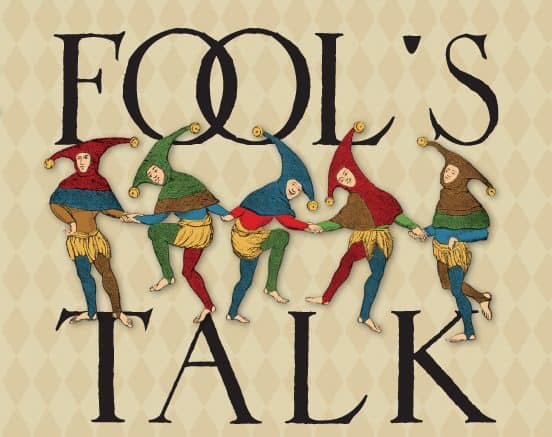Guinness, Os. Fool’s Talk: Recovering the Art of Christian Persuasion. Downers Grove, IL: InterVarsity, 2015. 272 pages. $22.00.
Every follower of Jesus Christ is called to be a witness of his life, death, and resurrection. Yet we live in an age when fewer and fewer people in our culture are interested in the truth of the gospel, and more and more people are resistant or even hostile to it. In response, many Christians and churches have simply given up on evangelism, hoping their lifestyle or commitment to social justice will be enough to influence their neighbors toward Christ. Others, resisting the pressure of our culture to stop sharing the gospel, continue to witness as if most people were interested in what Christians have to say. Even if they do end up getting a hearing, a reliance on cookie-cutter approaches to evangelism often obscures the message and keeps them from connecting to others.
If we are to be effective witnesses of the gospel today, we need to recover the art of persuasion, of presenting the gospel to people who don’t agree with us or care about our message. This is the purpose of Os Guinness’s latest book, Fool’s Talk. According to Guinness there are three kinds of fools in the Bible. The first fool, the one we are most familiar with, is the fool who refuses to acknowledge God. The second type of fool is very different: the person who is not actually a fool at all but who is prepared to be treated as a fool for Christ’s sake (1 Cor 4:10). The third type of fool in the Bible goes a step farther, and is prepared to be treated as a fool for Christ’s sake so that he can speak truth to power, shaming and subverting the wisdom of the world. This of course is what God did on the cross through the death of Christ (1 Cor 1:18-31).
The way of the third fool is the way to recover the art of persuasion in our Christian witness. This way means embracing a personalized, gospel-centered witness rather than a specific technique in presenting the gospel. Guinness is adamant that when it comes to our witness, there is no single method that will reach every person. Jesus never spoke to anyone the same way, and neither should we. Gospel-centered witness means embracing the heart and the mind, using stories and/or rational arguments depending on the person. It means getting to know a person, loving them in the same way that God loves them. We are not called to share our faith out of guilt or a desire to compete for cultural influence, but out of love for God and others. We must reconnect apologetics and evangelism, making sure our best arguments for the gospel are in the service of leading people to Jesus Christ.
Perhaps the strongest aspect of Fool’s Talk, and the biggest reason you should read it, is that Guinness doesn’t just explain the need for recovering the art of persuasion or what it means, but takes the time to walk through how to do it. He presents several broad responses we can employ as we talk to people about Jesus, encouraging the use of humor, creativity, imagination, and compassion. He includes chapters on how to respond to questions we can’t answer, how we should react to the charge of hypocrisy, and on engaging people wherever they are on their spiritual journeys. Relentlessly biblical and well-aware of our contemporary culture, this book encourages and equips us to be the gospel witnesses God calls us to be.

